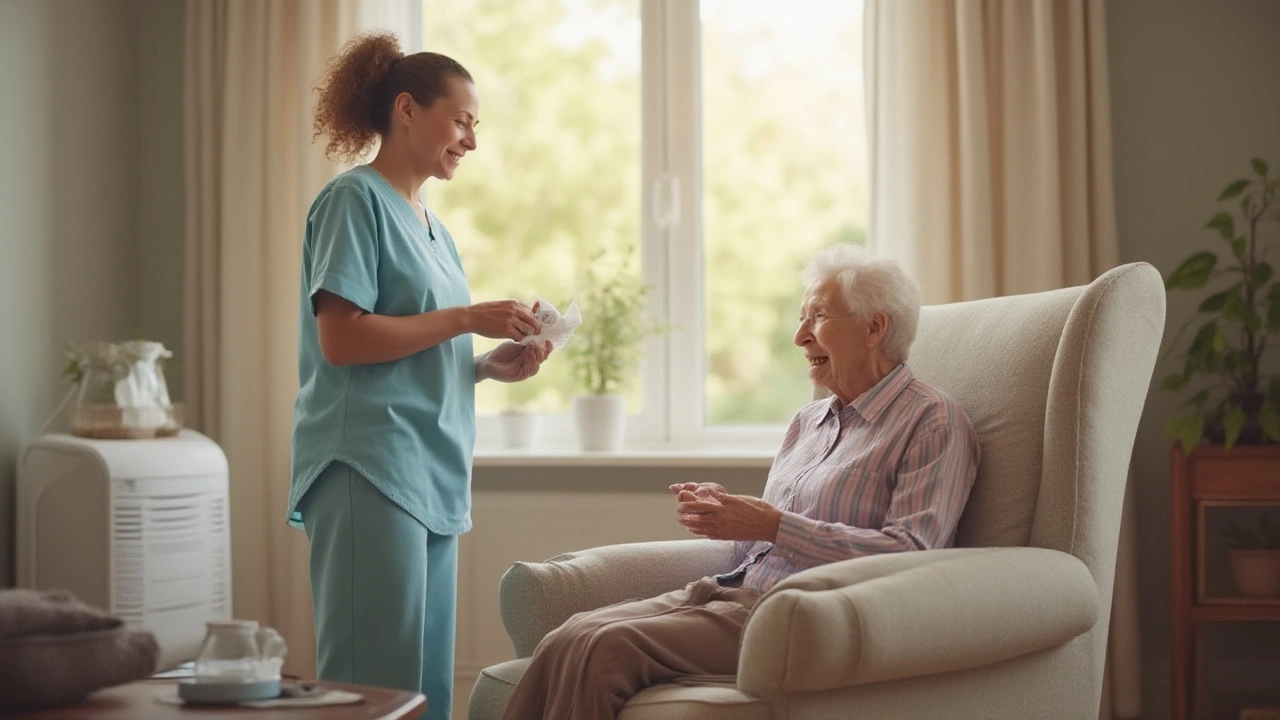Elderly Health Tips: Simple Steps for a Stronger, Safer Life
Finding easy ways to feel better every day can be a game changer when you’re 65 or older. You don’t need a fancy plan—just a handful of habits that fit right into your routine.
Everyday Habits That Make a Big Difference
First off, food matters. Aim for a plate that’s half vegetables, a quarter lean protein (like fish, chicken or beans), and a quarter whole grains. It keeps blood sugar steady and gives your muscles the fuel they need. Don’t forget water—older bodies feel thirst less often, so sip a glass before each meal and keep a bottle nearby.
Movement doesn’t have to mean a marathon. A 10‑minute walk after lunch, a few stairs, or gentle chair stretches can keep joints flexible and heart health on track. If you’re new to exercise, start with balance drills—standing on one foot for a few seconds, then swapping sides. Those simple moves cut fall risk dramatically.
Sleep is another pillar. Aim for 7‑8 hours in a dark, cool room. If you wake up at night, avoid screens; a short breathing exercise helps you drift back faster. Consistent bedtime signals tell your body when to rest and when to be alert.
Medication safety can’t be overlooked. Write down every pill, dose, and timing. Use a weekly pill organizer and set phone reminders. If a new drug is added, ask the pharmacist or doctor how it interacts with what you already take. A quick check can prevent nasty side effects.
Staying Connected and Mentally Sharp
Social contact isn’t just nice—it protects brain health. Call a friend, join a community class, or volunteer for a local cause. Even a short chat once a week keeps feelings of isolation at bay.
Keep your mind active with puzzles, reading, or learning a new skill. Apps that teach language or music can be fun and boost memory. The key is regular challenge—like a daily crossword or a short video lesson.
Regular check‑ups are a must. Schedule a yearly physical, eye exam, and dental visit. Quick screenings catch issues early, which means simpler treatments later.
Home safety should be a quick audit. Install grab bars in the bathroom, use non‑slip mats, and keep clutter off walkways. Good lighting around stairs and night‑lights in hallways reduce trips after dark.
Finally, give yourself credit. Small wins add up. Celebrate hitting a water goal, mastering a new stretch, or finishing a book chapter. Positivity fuels motivation and helps you stick with the habits.
By weaving these straightforward tips into daily life, you’ll feel steadier, sharper, and more in control. The goal isn’t perfection—just consistent, simple actions that keep you thriving as the years go by.
- By Leona Ashfield
- Health
- 12 Comments
Managing Allergies in Older Adults: Practical Tips for Seniors & Caregivers
Learn actionable tips for managing allergies in older adults. Discover how caregivers and seniors can improve comfort, spot symptoms, and reduce triggers.
